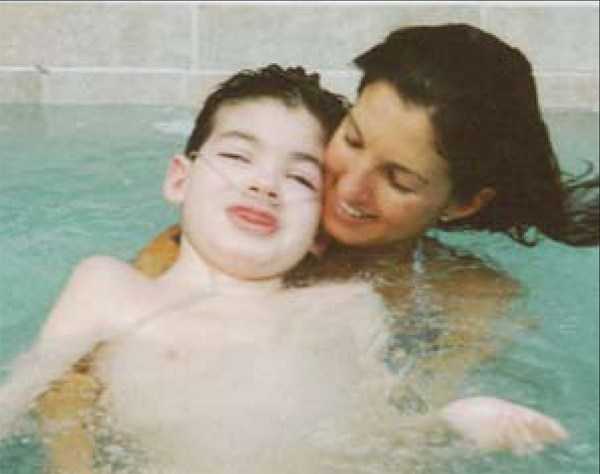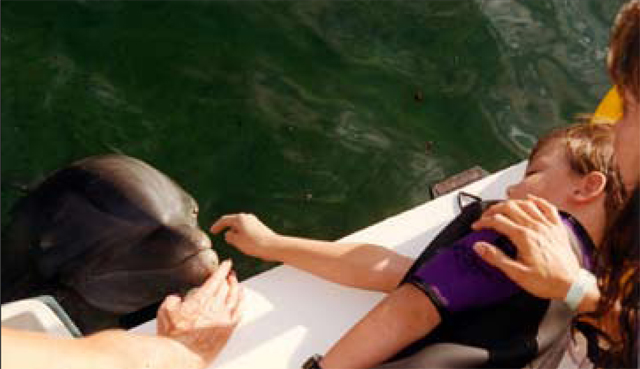Ebb and Flow
Written by Dianne Gray for the Children's Hospice and Palliative Care Coalition, Annual Journal
As I walked on an early summer day in South Florida, I listened to Duncan Sheik's "She Runs Away." I caught a phrase about “symptoms” and then "the darkness comes and the darkness goes," followed by "happiness ain't never how you think it should be so."
 It provoked a revelation. Pediatric palliative care is necessary because the darkness comes and the darkness goes, and happiness aint never how you think it should be so.
It provoked a revelation. Pediatric palliative care is necessary because the darkness comes and the darkness goes, and happiness aint never how you think it should be so.
It was Christmas Eve when our pediatric neurologist told me that my beautiful blond-haired green-eyed four-year-old son, Austin, was diagnosed with a rare degenerative brain disease, NBIA disorders, and probably would die within a few years. I will remember forever that dark moment, thinking the light never will shine again.
Like most parents, I researched, read, cried, prayed, and cried some more. I came to understand the terms spasticity, dytstonia, and neurogenerative brain disease. What I had no way of comprehending was the depth of suffering the disease would impose on Austin's body, or the way pain could ebb and flow over minutes, hours and even days... gripping my little boy with such force that I would have given my own life thousands of times over so that he would not have to endure another nanosecond of suffering.
When we finally became acquainted with hospice care, I was sure that by picking up the telephone and signing the admission papers (even though we were "at home" patients until the end), it meant that we had been defeated. I had given up on my son, and in essence on myself, too. In hindsight, I could not have been more wrong.
Instead I became "friends" with a system of care that includes comfort, guidance, education, pain management and the ability to enjoy what Elisabeth Kubler-Ross taught, which is the concept of "living fully while dying." Pediatric palliative care is the solution because the agony does come and can go at all hours, stealing away precious moments of the time I had left with my child.
Palliative care allowed us to share moments of genuine happiness that we would never have been able to experience. We tasted chocolate ice cream in bed, smiled at Timon and Pumbaa's jokes, and baked in the kitchen with Austin's sister Christina. We even floated in the pool with connected sections of oxygen tubing. One nurse scowled when I suggested it, while the one who made it happen giggled!
We even found a way to swing in the back yard despite the naysayers insisting that "it couldn't be done." Palliative care opened the doors to the creation of happy memories, not only for Austin, but for those of us who remained after his passing in February 2005.
 I am listening to Duncan Sheik again, and I agree with him, "the darkness comes and the darkness goes" and "happiness ain't never how we think it should be so." It was never a life I would have requested, but looking back I can say I was able to love fully and appreciate the ride. Without palliative care, I may not have been able to feel this way as the darkness may have stayed and the happiness may have gone unrecognized. I am indebted to our palliative care team for supporting our family. It is not a perfect system, yet I will cherish the perfect moments that I shared with my son for the rest of my life.
I am listening to Duncan Sheik again, and I agree with him, "the darkness comes and the darkness goes" and "happiness ain't never how we think it should be so." It was never a life I would have requested, but looking back I can say I was able to love fully and appreciate the ride. Without palliative care, I may not have been able to feel this way as the darkness may have stayed and the happiness may have gone unrecognized. I am indebted to our palliative care team for supporting our family. It is not a perfect system, yet I will cherish the perfect moments that I shared with my son for the rest of my life.

 © Hospice and Healthcare Communications
© Hospice and Healthcare Communications